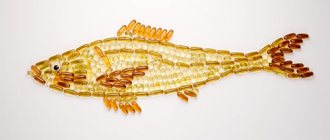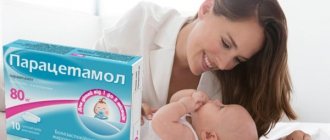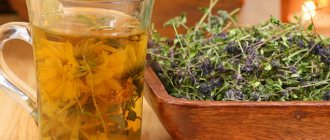Treatment tactics for breastfeeding
The body is weakened during lactation, so lack of rest, dehydration, intoxication and infection can lead to very serious complications and consequences. Therefore, treatment of acute respiratory infections during breastfeeding should be carried out with strict adherence to the recommendations that are usually prescribed to patients: rest, plenty of fluids, fresh air.
First of all, it is necessary to maintain bed rest and devote more time to sleep. You should stay in bed even if there are no pronounced symptoms or fever. Rest is necessary for the body at the very beginning of the disease, when it mobilizes forces to fight the infection.
The room in which the infected person is located should also be well ventilated. A humid, hot atmosphere and stagnant air are excellent conditions for the proliferation of pathogenic bacteria. And cool, fresh air will not harm either the woman or the child.
Due to the development of infection, many toxins are formed in the body, which must be eliminated naturally. You need to drink more: compotes, fresh juices from vegetables or fruits, tea. If the child does not have a tendency to allergic reactions, then it is permissible to brew herbal teas: mint, chamomile, calendula.
ARVI during breastfeeding
ARVI during breastfeeding requires a special approach to treatment. This is due to the fact that not all medications are allowed for a breastfeeding woman. For this reason, it is necessary to know how to treat viral diseases during lactation.
Table of contents
|
ARVI during breastfeeding, symptoms
During breastfeeding, the mother's body is more susceptible to respiratory diseases, since the immune defense is weakened.
ARVI is a common pathology, so you need to know how the disease manifests itself.
Symptoms of a respiratory viral disease:
- cough;
- sneezing;
- a sore throat;
- runny nose;
- hyperthermia up to 37-39°C.
Associated symptoms are chills, malaise, weakness, and drowsiness.
Respiratory diseases can lead to a decrease in the volume of milk secretion.
Is it possible to breastfeed, measures to protect the baby
It is recommended to continue breastfeeding in case of respiratory pathologies.
During illness, the mother develops antibodies to the virus that caused the illness.
Antibodies are transferred from a woman's milk to her baby, protecting him from infection.
Breastfeeding is permissible only if the mother does not take any medications that have a negative effect on the baby.
If medications that are dangerous to the baby are used, breastfeeding must be stopped.
To maintain lactation function for the entire course of therapy, you should express milk at least 5 times a day.
You need to express until the last drop so that milk secretion does not stagnate. Otherwise, mastitis may occur.
You can express either by hand or using a breast pump. A breast pump can be used manual or electric.
The electric one sucks out milk secretions more effectively and reduces the risk of milk stagnation.
The force of discharge is adjustable to prevent nipple cracks.
During illness, it is recommended to drink at least 2-2.5 liters of water.
This is necessary to preserve lactation function, as well as to prevent dehydration, dryness of the mucous membranes of the nose and oral tract.
You are allowed to drink fruit drinks, teas, compotes, and juices. They should be warm or at room temperature.
To reduce the risk of ARVI, it is recommended to maintain personal hygiene and wear a mask whenever there is contact with the child.
A mask is also worn during breastfeeding.
The mask protects the baby from getting large amounts of viruses during sneezing and coughing.
It is recommended to change the mask every 2 hours. It is better to use disposable protective equipment.
The room where the child lives should be wet cleaned daily. It is also necessary to ventilate the room at least 2 times a day.
It is advisable to install an air humidifier in the room or cover the radiators with a damp sheet (towel).
The mother should use personal hygiene products (towels and others).
It is advisable to sleep separately from the baby. It is not advisable for mother and baby to sleep together during illness.
ARVI in a nursing mother, treatment of respiratory viral diseases
Therapy for respiratory diseases consists of gargling, rinsing the nose, taking antiviral medications and other drugs.
First of all, etiotropic therapy is carried out, aimed at combating the causative agent of the disease.
Antiviral drugs are prescribed.
The safest for a nursing mother are:
- Anaferon tablets;
- Viferon in candles.
Viferon is considered a more effective drug. It reduces the concentration of viral agents in the blood and mucus from the nasal passages.
While taking the drug, the runny nose goes away within a few days, the fever goes away, and overall health improves.
If hyperthermia is present, antipyretics are indicated. Nursing women are allowed to take
Paracetamol in adult dosage (500 mg).
If Paracetamol is not effective, it is allowed to use Ibuprofen (Nurofen) in an adult dosage (200 or 400 mg).
When the temperature does not decrease with Paracetamol and Ibuprofen, it is recommended to call an ambulance.
If there is a severe runny nose, the nose should be rinsed with saline or sea salt.
For rinsing you will need a syringe or bulb.
Before rinsing, vasoconstrictor drops (Nazivin, Otrivin or others) should be instilled to relieve swelling. This will improve the effect of the procedure.
It is recommended to rinse up to 5-6 times a day.
Washing with chamomile solution is allowed.
Useful tips for mothers: NURSING HEALTHY AND BEAUTIFUL MOTHER
If you have pharyngitis, accompanied by a sore throat and hoarseness, it is necessary to gargle.
A solution of Miramistin 1%, Furacilin, Rotocan, Chlorhexidine, chamomile decoction, echinacea, calendula and others are suitable for the procedure.
Rinsing is carried out 20-30 minutes before or after meals.
The frequency of manipulation is up to 5-8 times a day, depending on the severity of symptoms.
You can use throat sprays:
- Chlorophyllipt;
- Kameton and others.
If you have a cough, it is recommended to drink herbal remedies, such as:
- Gedelix;
- Mukaltin;
- Lazolvan and others.
For nursing mothers, inhalation procedures are effective for coughing. Inhalations stop dry coughs and make sputum less viscous.
Sputum clears up better after 2-3 procedures.
For inhalation during feeding, it is recommended to use saline solution. It does not cause allergies, but is good for dry coughs.
Inhalation with saline solution is recommended using a nebulizer.
The device sprays the solution into small particles that penetrate even small bronchi.
This helps to quickly stop coughing and prevent the occurrence of bronchitis and pneumonia.
Inhalation procedures with Lazolvan should also be carried out using a nebulizer. The drug is very effective for viscous sputum.
It is allowed to do inhalations with herbs. A steam inhaler is used here.
Inhalations should not be done if there is a high temperature. Otherwise, the condition may worsen.
To increase immune defense, vitamin C is prescribed. It is safe for infants.
It is not advisable to take medicinal herbs orally on your own. This may cause an allergic reaction in the baby.
Treatment of ARVI in nursing women is carried out only by a doctor.
You cannot treat yourself. This can lead to complications.
Maternal nutrition
Nutrition should be gentle. Soups are cooked in vegetable or second meat broth.
Porridge is recommended to be eaten overcooked, without coarse particles, with a small amount of milk.
It is advisable to eat boiled vegetables in the form of puree.
It is preferable to eat meat in the form of cutlets, turkey or chicken meatballs. Steam semi-finished products.
A little grated cottage cheese and warm milk are acceptable. Yoghurts and kefir are allowed up to 200-400 ml per day.
Drinks should not be cold or very hot. It is recommended to serve soups and main courses at a temperature of no more than 60°C.
What to exclude:
· fried, smoked, salty foods, canned food;
· fatty meat and fish products, jellied meat;
· sausages, pork;
· sweets: ice cream, cakes, pastries, butter cookies and others;
· carbonated sweet drinks.
If mom doesn't want to eat, she shouldn't force her.
The most important thing is sufficient drinking regime (at least 2 liters per day).
ARVI during breastfeeding is dangerous due to possible complications.
For this reason, if a respiratory disease occurs, you should immediately consult a doctor.
Timely and correct treatment will help maintain breastfeeding, prevent the occurrence of pneumonia, bronchitis, otitis media and other complications.
- about the author
- Recent publications
Olga Kuznetsova
author of the publication (site editor)
DOCTOR - PEDIATRIC Education: Siberian State Medical University. Certificate of specialist in the specialty "Pediatrics"
Olga Kuznetsova recently published (see all)
- At what age can a child have an omelet - 10/05/2020
- Hypoallergenic diet for mom - 10/03/2020
- How to introduce eggs into complementary foods for a child - 09/27/2020
Antiviral drugs
When treating ARVI in a nursing mother, Ribovirin, as well as Arbidol and Remantadine should not be used. Anaferon and Aflubin, as well as Oscillococcinum, should be used with caution - they can provoke allergies in children and reduce lactation.
It has been established that drugs based on human recombinant interferon alpha are safe and effective for lactating women. Therefore, it is permissible to use Grippferon or Viferon. However, they can be used on the first day of disease development.
Against runny nose
Vasoconstrictor nasal drops have a local effect and are therefore safe for the child. It is acceptable to use products based on naphazoline - Naphthyzin or Sanorin, but they have a short shelf life.
Drops based on xylometazoline are effective for up to 10 hours. These include Galazolin, Otrivin and Ximilin.
Oxymetazoline-based products last up to 11 hours. These are drugs such as Noxprey and Nazol, Nazivin.
You can use vasoconstrictor drugs for no more than 5 days, otherwise they will become addictive.
Treatment of colds while breastfeeding
Most nursing mothers do not know how to cure a cold while breastfeeding so that the therapy does not affect the baby’s health. The whole secret of successful treatment is to support the body, providing it with rest and the supply of necessary vitamins (ascorbic acid).
The following will help you speed up recovery while breastfeeding:
- timely (at the first signs of acute respiratory infections) contact a therapist;
- compliance with bed rest. The body, being in a calm state, accumulates energy and successfully resists infection. Even with minor symptoms of a cold while breastfeeding, it is better to go straight to bed - this step greatly reduces the risk of complications;
- drinking plenty of fluids. This is necessary not only to maintain lactation (at fever, during the peak of the disease the amount of breast milk decreases), but also to remove toxins that accumulate in the body as a result of viral activity. You can drink fruit drinks, compotes, tea with raspberries, linden or lemon, having previously ruled out the possibility of an allergic reaction in the child;
- taking antiviral drugs and other medications recommended by a doctor;
- carrying out auxiliary therapy using folk remedies.
A high temperature and the main symptoms of a cold are normal in the first 3 days of the disease. If it is not possible to “bring down” the temperature, or low-grade fever is observed for 5 days, and the signs characteristic of acute respiratory infections develop progressively, then this may indicate the addition of a bacterial infection. This condition requires repeated contact with the therapist to adjust the treatment regimen. When determining how to treat a cold while breastfeeding, you need to proceed from the safety of the chosen remedy for the child.
Antiviral drugs for hepatitis B
Antiviral medications should be taken in the first hours of the disease while breastfeeding, when minor symptoms such as a sore throat, weakness, sneezing, or low-grade (or high) temperature appear. And if Arbidol, Groprinosin, Remantadine are prohibited during breastfeeding, then Oscillococcinum, Anaferon (effectiveness has not been studied) or Aflubin, although allowed during lactation with a risk/benefit ratio, can lead to the development of allergies in the child.
A nursing mother can “boost” her immune system and prevent the multiplication of viruses if she uses medications containing human alpha interferon - these are Viferon rectal suppositories and Grippferon drops. It must be remembered that 3-4 days after infection, the use of immunomodulatory drugs, if not useless, will not bring the desired result.
Antipyretics for hepatitis B
At a temperature not exceeding 38.5 C, provided that the nursing woman feels normal, there is no need to take antipyretic drugs.
It is during hyperthermia that the body produces antibodies to the virus that attacks the mucous membranes. When the temperature approaches the borderline (39 ° C), then during lactation it is recommended to take medications based on paracetamol and ibuprofen. The usual Fervex, Antigrippin and similar combination drugs cannot be taken while breastfeeding.
Medicines for rhinitis
Watery discharge from the nasal passages is an integral part of acute respiratory infections. When viruses come into contact with the nasopharynx, the mucous membrane becomes inflamed, red and swollen. As a result, nasal breathing becomes difficult, the body experiences oxygen starvation, and health worsens.
Breastfeeding women with a runny nose are allowed to use vasoconstrictor drugs based on:
- naphazoline (Naphthyzin) - according to indications;
- xylometazoline (Galazolin) - with caution;
- oxymetazoline (Nasivin) - possibly after the risk/benefit ratio;;
- oil drops (Pinosol) - indicated for use.
In parallel with the drops, rinsing with saline solution using the AquaMaris system is recommended. While breastfeeding, you can use the spray of the same name or any other based on sea water to cleanse the nasal mucosa. The course of treatment with vasoconstrictor drugs should not exceed 5 days; if there is no improvement, you must seek new prescriptions from an ENT specialist.
For sore throat and cough
A sore throat almost always accompanies a cold when breastfeeding. It is impossible to get rid of it quickly, but you can slightly relieve inflammation of the laryngeal mucosa by rinsing with local antiseptics. Chlorhexidine, Hexoral (no information about unwanted effects), Furacilin are suitable for such purposes.
Gargling during breastfeeding can be alternated with irrigating the throat with antimicrobial sprays: Chlorophyllipt, Kameton (there is not enough experience in use). Lozenges designed to “soften” the throat: Strepsils (with caution), Isla Moos. For sore throat, it is useful to treat the surface of the tonsils with Lugol's solution.
Among the folk remedies for sore throat and sore throat during breastfeeding, rinsing with herbal decoctions will help: sage, chamomile, calendula, and iodine-salt irrigation. Warm drinks (milk + honey, raspberries, tea + lemon, ginger + lemon) will relieve inflammation and relieve discomfort.
Cough is a serious symptom and should be treated under the supervision of a physician. Depending on the type (wet, dry), appropriate medications are prescribed. The main purpose of all syrups is to liquefy mucus, which helps cleanse the bronchi and lungs. The herbal preparation marshmallow root syrup is often prescribed.
For difficult to clear sputum, Fluditec syrup can be used with caution after consulting a doctor. Also, during breastfeeding, homeopathic syrup Stodal is prescribed for the symptomatic treatment of coughs of various etiologies. For chest cough, inhalation through a nebulizer with Borjomi without gas, Pulmicort is recommended. The nature of the cough should be monitored by a doctor every 2-3 days, and if the intensity of discharge and viscosity of sputum changes, you should immediately seek advice.
Sore throat from cough
Nursing mothers should treat sore throats with topical antiseptics. It is advisable to rinse using:
- hexoral;
- saline solution;
- iodinol;
- chlorhesidine.
Strepsils or Sebidin tablets help temporarily reduce pain. You can use Chlorophyllipt, Kameton or Camphomen sprays.
During lactation, it is permissible to use expectorants based on licorice or ivy, marshmallow or thyme. They are produced in the form of tablets or syrups.











